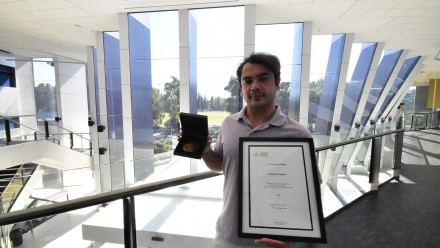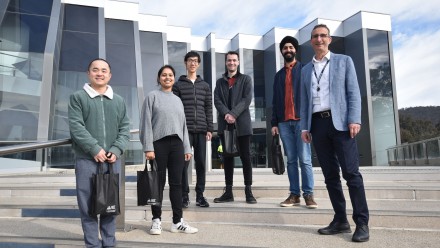The Burgio Group - Genome editing and microbial immunity
Micro-organisms such as Bacteria, archaea and viruses live and thrive in all possible environments (gut, deep sea, extreme heat or cold…). Using a multidisciplinary approach (computational biology, biochemistry, microbiology, synthetic biology …), the Burgio group aims to uncover how these microbes and viruses survive and how bacteria resist to viral infection to discover and engineer the next generation of biotechnology applications for gene therapy, molecular diagnostics or RNA technologies with a specific focus on CRISPR technology. Our group is focused on three main research themes.
Discovering new enzymes for biotechnology applications.
Our group has collected over 30 terabytes of microbial metagenomes and metatranscriptomes assemblies corresponding of over 40,000 human equivalent genomes. These sequences are from all possible environments such as human gut, antarctica, hot spring, hydrothermal vent, polluted sites… and are a unique set collection of microbial genomes and transcriptomes. Our aim is to develop cutting edge computational algorithms such as Large Language Models (LLM), machine learning and computational pipelines to find new viruses and new enzymes for biotechnology applications from bacteria, archaea and viruses living in extreme environments. From these discoveries we characterise biochemically in the laboratory new CRISPR and RNA enzymes.
Determine the role of bacterial defences against phage infection.
The evolutionary arms race between viruses and prokaryotes has resulted in the evolution and diversification of bacterial defences against viruses. Prokaryotes have devised a tremendous diversity in their counter-attack strategies against plasmids or viruses spanning from the first line of defence (restriction/modification, prokaryote Argonautes) to adaptive immunity (CRISPR). CRISPR systems are of particular interest for their programmable single effector nucleases that have enabled their use as a versatile and precise tool for genome engineering and nucleic acid detection. Using biochemistry and microbiology, our group aim to unlock the mechanisms underlying antiviral defence in bacteria with a specific focus on resistance to RNA viruses and on CRISPR systems.
Development of CRISPR and RNA technologies.
CRISPR and RNA technologies have a tremendous potential for many biomedical applications such as gene therapy to cure diseases. Using synthetic biology and protein chemistry our laboratory has discovered and engineered CRISPR nucleases from Cas9 and Cas12 families for genome engineering and molecular diagnostics. Our laboratory aims to mechanistically understand how CRISPR enzymes recognises the nucleic acid and cleaves it. Ultimately our mechanistic investigation leads to engineer set of new or improved CRISPR nucleases with unique properties useful to biomedical applications. These enzymes for example serve to detect viral infections or to repair mutations for rare inherited diseases.
Enquiries are welcome from potential Honours or PhD students. A variety of projects are available within all of the areas of research undertaken by the genome editing and microbial immunity group. Please contact us.
| Project | Status |
|---|---|
| Development of CRISPR/Cas9 genome editing technology | Potential |
PloS Biology paper published 23 April 2015:













